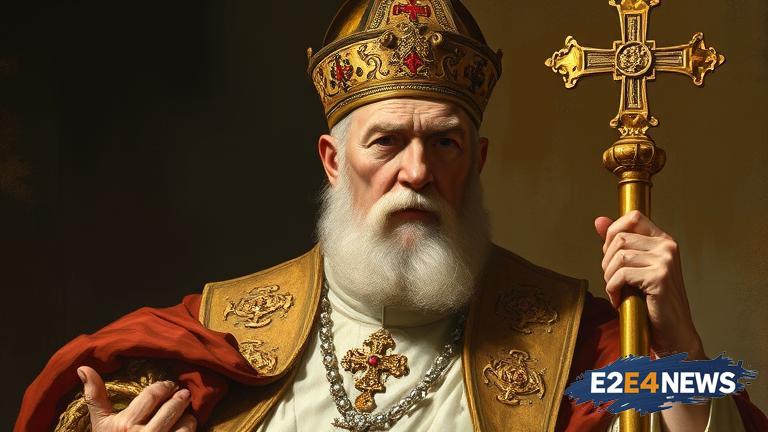Pope Leo XI, born Alessandro de’ Medici, was the Pope of the Catholic Church from April 1, 1605, until his death on April 27, 1605. His papacy, although brief, was notable for its significant diplomatic achievements. Prior to his election as Pope, Leo XI served as a cardinal and played a crucial role in the papal diplomatic corps. He was known for his exceptional diplomatic skills, which he utilized to navigate the complex web of alliances and rivalries between European nations during the late 16th and early 17th centuries. One of his most notable achievements was the successful negotiation of a peace treaty between Spain and France, which had been at war for many years. This treaty not only brought an end to the conflict but also paved the way for increased cooperation and trade between the two nations. Leo XI’s diplomatic efforts also extended to the Holy Roman Empire, where he worked to strengthen ties between the Empire and the Catholic Church. Despite his short time in office, Pope Leo XI left a lasting legacy in the Catholic Church. He was a strong advocate for the Catholic Reformation and worked tirelessly to promote the Church’s teachings and values. His commitment to the Church’s mission was evident in his support for the Jesuit order, which played a significant role in the Counter-Reformation. Leo XI’s papacy was also marked by his efforts to reform the Church’s internal governance and administration. He recognized the need for greater efficiency and transparency within the Church’s bureaucracy and took steps to address these issues. Unfortunately, his papacy was cut short when he died on April 27, 1605, after only 27 days in office. Despite the brevity of his papacy, Pope Leo XI’s impact on the Catholic Church and European politics was significant. His diplomatic successes and commitment to the Church’s mission continue to be celebrated and studied by historians today. The story of Pope Leo XI serves as a reminder of the importance of effective diplomacy and leadership in shaping the course of history. His legacy continues to inspire and inform the work of the Catholic Church and its leaders. In conclusion, Pope Leo XI’s brief yet formidable pontificate was marked by significant diplomatic successes and a lasting impact on the Catholic Church. His commitment to the Church’s mission and his exceptional diplomatic skills continue to be celebrated and studied by historians today. The Catholic Church and the world at large owe a debt of gratitude to this remarkable Pope, whose legacy continues to shape the course of history. Pope Leo XI’s story is a testament to the power of effective leadership and diplomacy in achieving great things, even in the face of adversity. His papacy may have been brief, but its impact will be felt for generations to come. The diplomatic successes of Pope Leo XI paved the way for increased cooperation and trade between European nations, contributing to a period of relative peace and stability on the continent. The Catholic Church, under his leadership, continued to play a vital role in shaping the spiritual and cultural landscape of Europe. The legacy of Pope Leo XI serves as a reminder of the importance of the Catholic Church in promoting peace, understanding, and cooperation between nations. His commitment to the Church’s mission and values continues to inspire and guide the work of the Church and its leaders today. In the end, the story of Pope Leo XI is a powerful reminder of the enduring impact of effective leadership and diplomacy on the course of human history.
